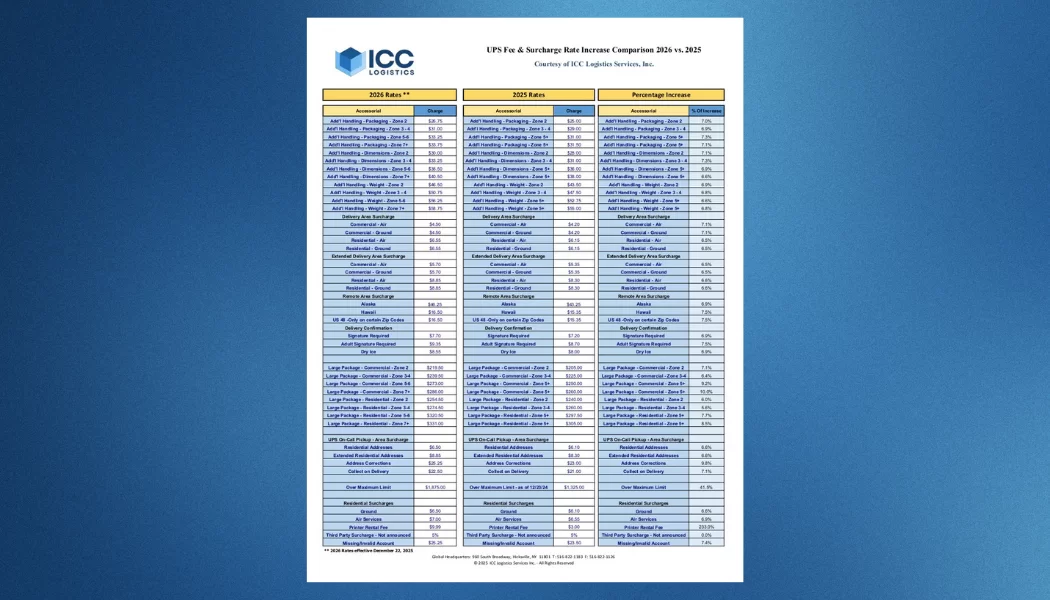It often begins with a single line item and culminates in a freight invoice that steadily erodes the margin. For high-volume shippers, every unchecked bill is a potential leak in the bottom line. A Freight Invoice Audit isn’t just about finding mistakes; it’s about exposing the hidden costs buried in your supply chain and regaining control before your budget is quietly drained.
Industry studies estimate that 5% to 15% of freight invoices contain errors. For businesses that move goods daily, this reality translates into significant, ongoing overspending.
Why Freight Invoice Errors Happen
Most logistics teams assume invoices are right until proven otherwise. But carrier billing is built on complexity: fluctuating fuel surcharges, dimensional weight formulas, contracted discounts, and customer-specific rating logic. Add in the sheer number of shipments across parcel, LTL, TL, and international freight, and it’s no surprise errors are pervasive. Gartner research has noted that manual processes, combined with limited internal auditing resources, often exacerbate the issue.
Carriers generally aren’t malicious — but mistakes are inevitable. Without active oversight, those mistakes multiply month after month. Finance departments are often stretched thin and focused on closing books, while logistics managers concentrate on moving freight quickly, not cross-checking billing details. This accountability gap is exactly when the invoice trap springs shut.
The Most Common Billing Traps
If you’ve ever looked at your freight spend and thought, “That feels high,” your instinct was probably right. The most damaging errors aren’t dramatic — they’re repetitive and corrosive:
- Duplicate charges for the same shipment
- Phantom accessorials (e.g., liftgate fees never used or inside deliveries never happened)
- DIM weight surcharges billed above the actual package size
- Missed refunds for late deliveries, especially in parcel express
- Rates billed above contract terms when negotiated discounts fail to apply
At first, these errors might look small — $25 here, $60 there — but across hundreds or thousands of invoices each week, those cracks widen into six-or seven-figure leaks annually. Industry experts agree the problem is widespread. As our friend Jim Tompkins, Tompkins Ventures, notes, “at least 5-10% of invoices are billed incorrectly each year, and I’ve seen cases as high as 40%.”
For high-volume shippers, even the low end of that range translates into hundreds of thousands in preventable costs.
How Hidden Charges Impact Your Budget
Transportation spend is one of the largest controllable expenses in any supply chain. Unfortunately, hidden charges and missed credits distort more than just the budget line; they distort the baseline.
Imagine signing off on financials, thinking your freight spend is consistent, when in fact, padded accessorials and errors are clouding the data. That not only erodes profitability but weakens your negotiating leverage with carriers.
Accurate cost visibility is the foundation of budgeting, forecasting, and contract enforcement. Without it, you’re making financial decisions in the dark.
Why a Freight Invoice Audit Is Essential
A freight invoice audit moves far beyond catching duplicate charges. When properly implemented, it provides finance and supply chain executives with:
- Total spend visibility across transportation modes and service providers
- Benchmark comparisons to reveal out-of-line charges versus industry norms
- Contract compliance verification, ensuring negotiated terms are enforced
- Negotiation leverage powered by indisputable data evidence
- Improved forecasting and budgeting enabled by accurate cost information
This level of transparency shuts down “silent margin creep” — the gradual financial erosion caused by unchecked billing mistakes. Instead, leaders gain the confidence of knowing their transportation costs are correct and under control.
The Strategic Impact of Regular Audits
The benefits of routine auditing compound over time. Instead of firefighting with billing disputes, supply chain teams can reorient toward proactive cost control and strategic planning. Consistent audits unlock the following advantages:
- Early detection of recurring billing errors and systemic issues
- Identification of surcharge recovery opportunities where credits are due
- Preparation of data-backed cases for upcoming carrier contract negotiations
- Development of stronger carrier diversification and resilience strategies
In other words, auditing is not just about recovering dollars; it’s about reengineering the way you negotiate, forecast, and ultimately operate. Best-in-class shippers leverage audit insights as a cornerstone of logistics strategy, not simply as a back-office task.
Why ICC Logistics Leads in Freight Invoice Auditing
ICC Logistics brings over 50 years of experience across parcel, LTL, FTL, and international freight. Unlike in-house teams restricted by time or tools, our audits combine precision data validation with strategic insights that fuel stronger decision-making.
- We identify billing errors before they drain your budget.
- We operate on a contingency model — if we don’t find savings, you don’t pay.
- We strengthen long-term logistics strategies with benchmarks and compliance reporting.
Companies across manufacturing, retail, healthcare, and distribution rely on ICC Logistics for measurable results: reduced freight costs, enforceable carrier contracts, and long-term improvements in shipper-carrier relationships.
FAQs on Freight Invoice Audits
What common billing errors are found in freight invoices?
Common discrepancies include duplicate billing, failed discount application, inflated dimensional weight, and extraneous accessorial charges.
How do hidden charges impact transportation budgets?
Hidden charges accumulate quickly, compounding into six-figure financial leakage, which reduces available working capital and undermines reliable forecasting.
Why is invoice auditing essential for supply chain cost control?
Auditing ensures contract compliance, prevents silent margin loss, empowers negotiations, and keeps your P&L accurate.
What should you look for in a freight bill audit provider?
Seek a service that audits across all freight modes, verifies contract adherence, recovers credit opportunities, and provides actionable spend insights for sharper strategic decisions.
The Red-Flagged Invoice
Think of a freight invoice as a potential crime scene. Each suspicious line item is a red flag begging for investigation. When ignored, those red flags multiply until your margins are gutted beyond recognition. With the right audit partner, however, those red marks become recovered dollars — and a foundation for smarter, more resilient supply chain operations.
Don’t let another billing cycle drain profit through preventable mistakes. ICC Logistics has helped companies just like yours recover millions of dollars from unnecessary freight spend while strengthening their carrier agreements.
Get your risk-free assessment today and stop the billing monster before it claims another dollar from your bottom line.
Suggested Reading:
- Why a Freight Audit Should Be Your First Cost-Saving Move
- How Contract Negotiation Reduces Carrier Costs Without Sacrificing Service
- Parcel Auditing vs Freight Auditing: What’s the Difference?
- Understanding Surcharge Recovery and Hidden Fees in Shipping



 to receive our FREE white papers:
to receive our FREE white papers: